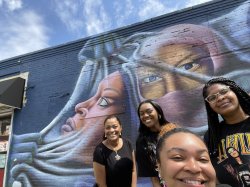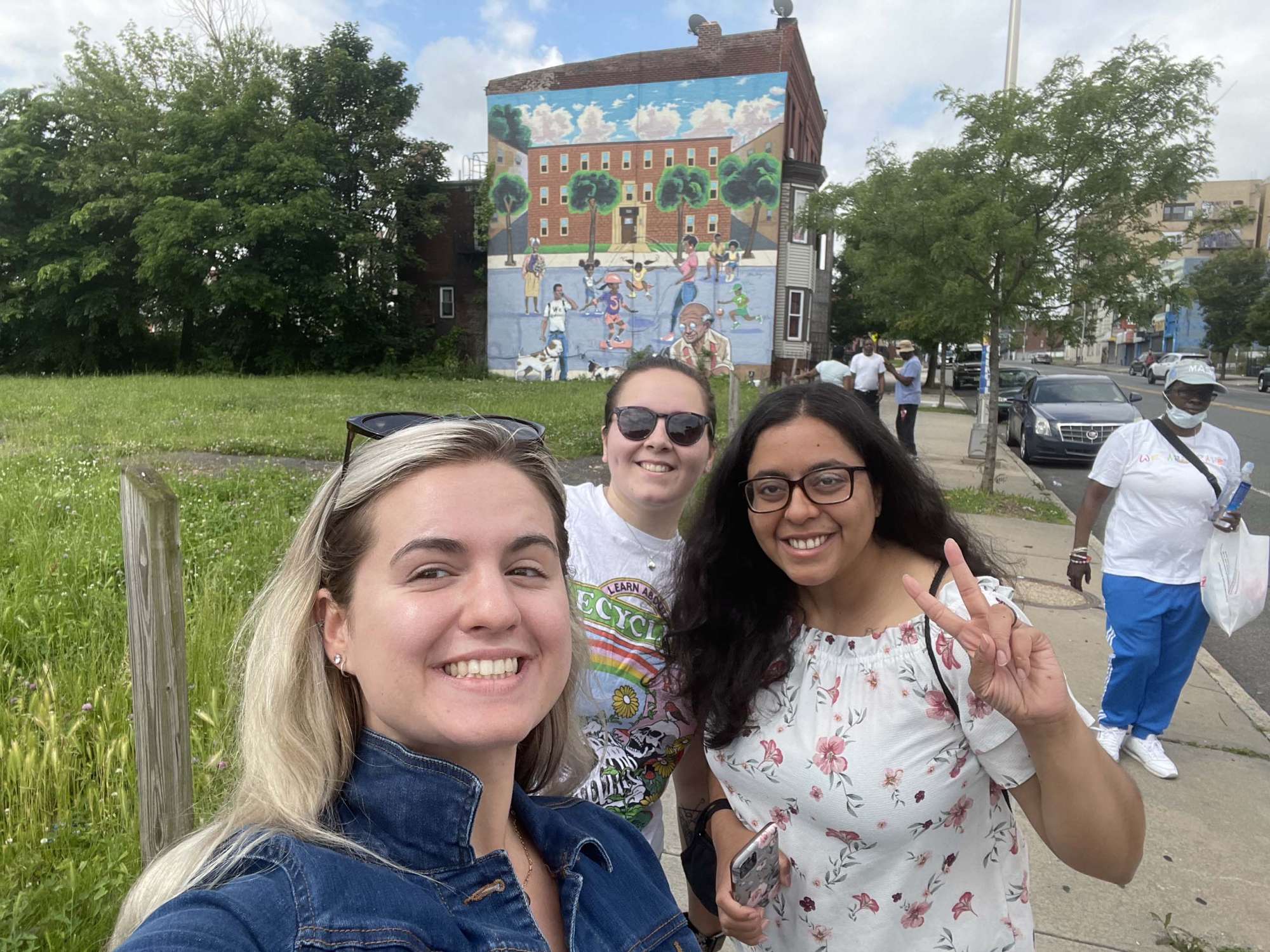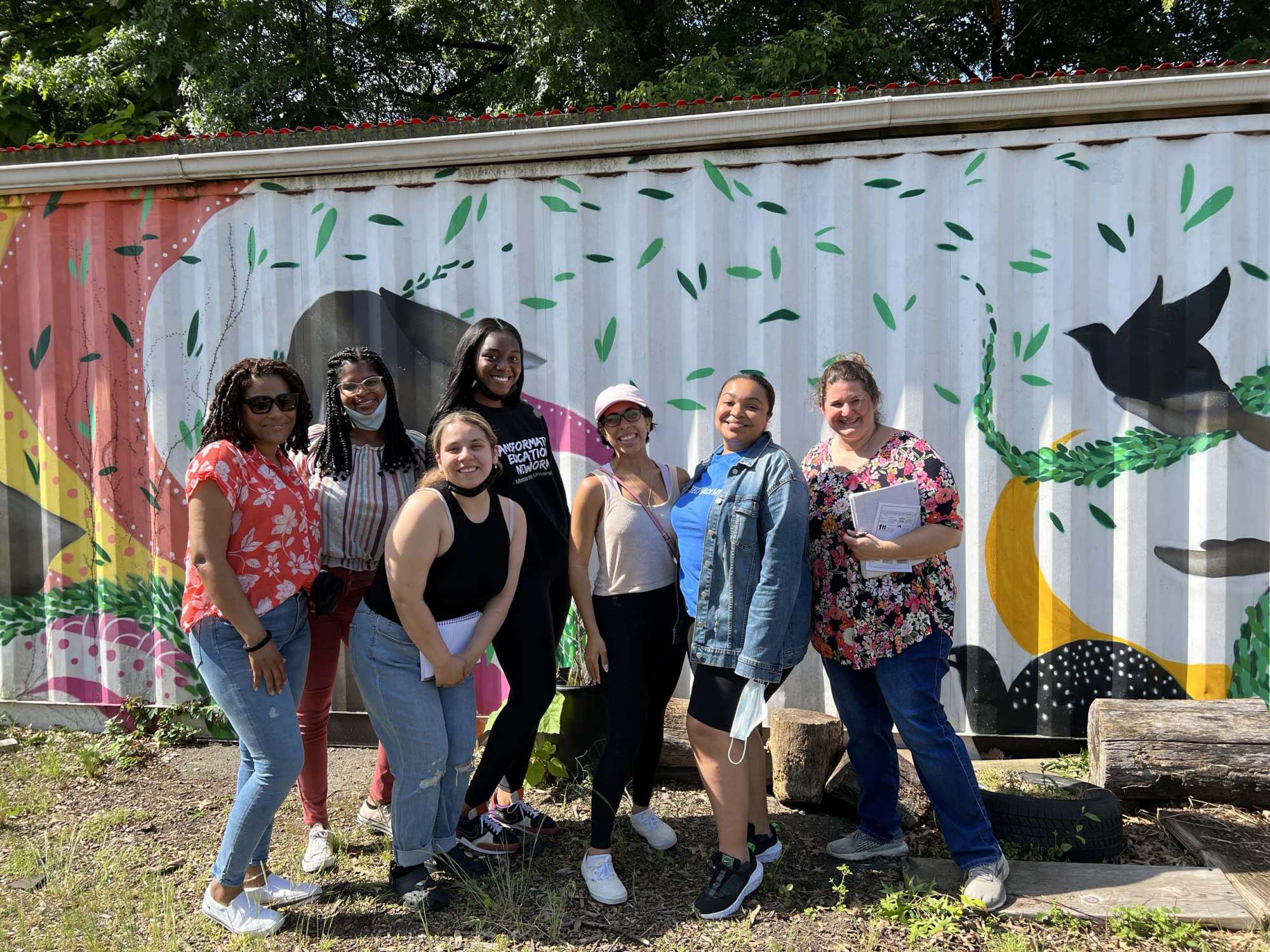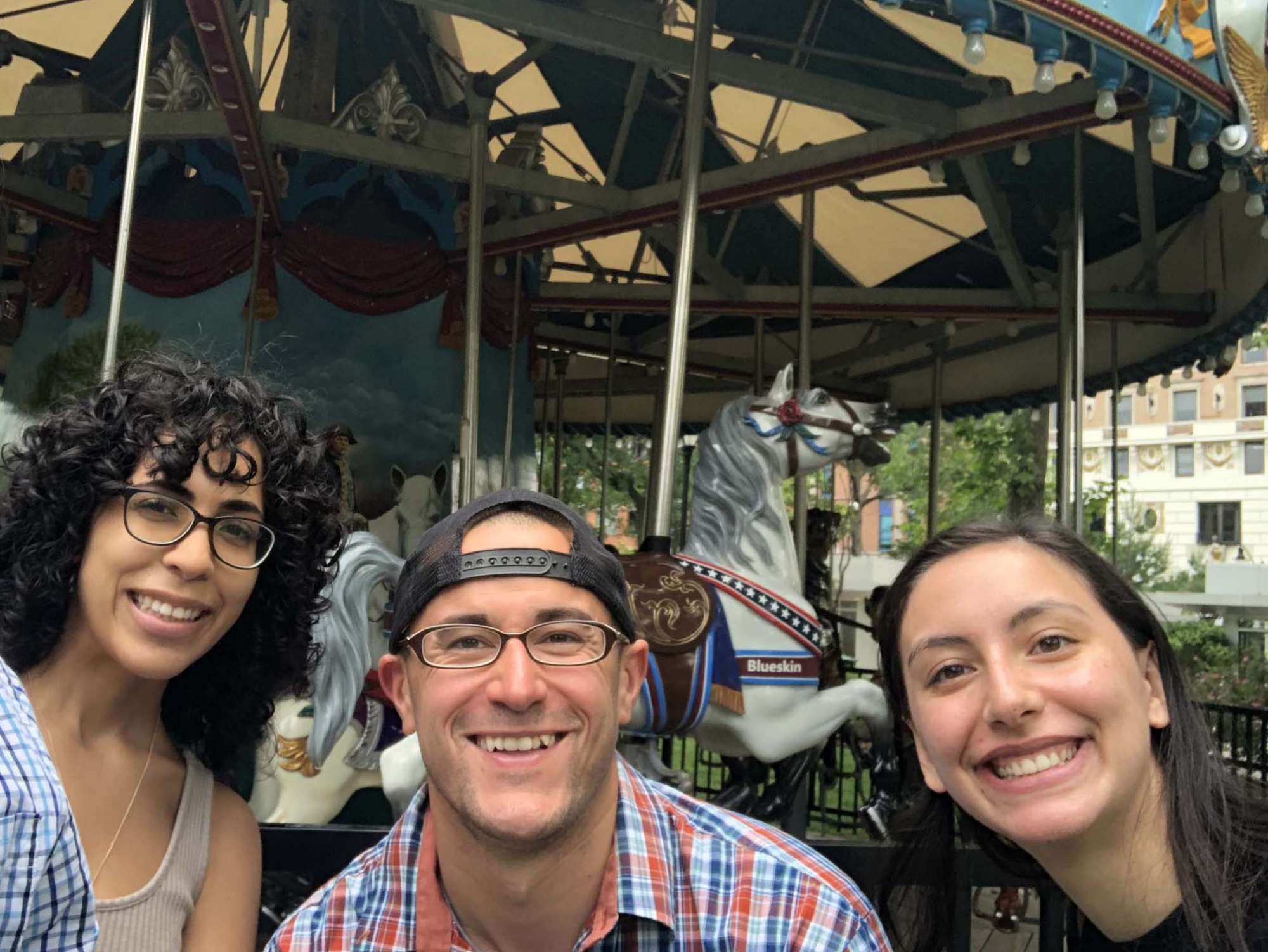Summer in the City
To transform classrooms, future teachers immerse themselves with lessons on Newark neighborhoods, community groups
Posted in: College News and Events, Uncategorized

Aspiring teacher Lamani Crawford ’22 is drawing on lessons she’s learning outside of the classroom to prepare for her first day teaching in the city of Newark. As part of an intensive orientation with the Montclair State University Transformative Education Network – nationally recognized for training antiracist and social justice educators – Crawford is a student of the city to understand where her students are really coming from.
“Personally, for me, this has definitely been a period of self-reflection,” says Crawford of the experiences this summer as a member of Montclair’s Urban Teacher Residency, including visiting neighborhoods where her students live and learning more about the city’s political and social history from community leaders.
“I’ve had a chance to think about my personal values as a person, what I believe, what I stand for, what I don’t support, and how I could bring that into my future classroom,” says Crawford, who as part of the residency will earn a master’s degree in Teaching (MAT) and certification as a teacher of students with disabilities.

The Transformative Education Network – known by its acronym TEN – offers the critical professional development in recruiting and preparing prospective teachers with partner districts, Newark Board of Education and Orange Public Schools. Over the past five years, 98 Montclair graduates have earned degrees through the Urban Teacher Residency and Newark Teacher Project.
The summer orientation helps the prospective teachers understand the distinct neighborhoods and the community-based organizations dedicated to improving the schools, according to Teaching and Learning professors and TEN co-directors Bree Picower and Tanya Maloney.
Environmental concerns are highlighted, particularly the health consequences for children who live In the Ironbound section of Newark crowded with factories and warehouses, a power plant, chemical refineries, the state’s largest garbage incinerator and a Superfund site.
“To actually engage in the environmental justice tour and smell the air and see all of the different places where waste is being collected and how there’s an incinerator right next to people’s homes, that’s a different experience than us, as professors, telling prospective teachers about their students’ experiences,” Maloney says.
“It allows us to have a different conversation when we start to talk about, ‘why do you think that student is acting the way they are in the classroom?’ It allows us to have that conversation from a place of thinking about how that child is being affected by systems, outside actors, that could be out of their control,” Maloney says.

The summer orientation also featured an intentional focus on community partnership and organizing. The Montclair students received an introduction to working with community-based organizations as a way to deepen their connection to the neighborhoods they will serve as teachers, Picower says.
The summer experiences segue directly into curriculum design as prospective teachers develop lesson and unit plans based on the students’ neighborhoods, experiences and identities.
Sharing an example, the professors pointed to a unit on social justice and community activism developed by Urban Teacher Residents Kathryn Restituyo and Katiana LaCroix. The teachers shifted how they were teaching common topics such as “community helpers” to be more culturally relevant for their students, including inviting environmental activist Christian Rodriguez to share how Down Bottom Farms is growing healthy food in the Ironbound.
The unit “solidified how community activism and activists can create substantial change right in their ‘backyard’,” Restituyo and LaCroix shared in the TEN newsletter. “Our students are able to see that within their own community activism plays a vital role.”
Such community wealth connects with the other assets, including the cultures and languages students bring into the classroom, observes Diane Tehranian, an engineer by training who is changing careers. She was attracted to the Newark Teacher Project after her experiences as a parent advocate at Montclair Public Schools, where her children go to school.
“I’m a proponent of hiring teachers of color and I am a white woman who’s coming into this,” she says. “I have an extra burden of needing to educate myself, to put in that extra work if I’m going to be a good teacher.”

Reflecting on what she’s learned this summer, Crawford, who earned a degree in Family Science and Human Development, says she’s confident she’s on the right path. “I feel more confident in myself and my goal,” she says.
Her friend, Tamara Dixon ’22, added the word “enlightening” to the experience. “I’ve learned so much about myself, about the world around me,” says Dixon, who was selected for the Urban Teacher Residency after graduating with a degree in Family Science and Human Development.
“I’m looking forward to meeting my students,” Dixon says, “learning more about the community, and continuing to meet new people who all share the same goal of wanting unity and love and gaining more knowledge.”
Story by Staff Writer Marilyn Joyce Lehren
Photos courtesy of the Transformative Education Network
